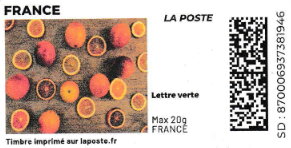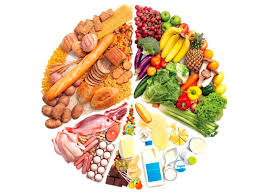Stamp: Seville Oranges. Resdesign (France 2022)
Seville Oranges. Resdesign (France 2022)
01 January (France ) within release MonTimbrEnLIgne. Food goes into circulation Stamp Seville Oranges. Resdesign face value Lettre No Face Value
| Stamp Seville Oranges. Resdesign in catalogues | |
|---|---|
| Colnect codes: | Col: FR-TIM 2022-481 |
Stamp is square format.
Also in the issue MonTimbrEnLIgne. Food:
- Stamp - Brown and White Macaroons. Redesign face value Lettre;
- Stamp - Two White/Red Doughnuts. Redesign face value Lettre;
- Stamp - Three Pink Doughnuts. Redesign face value 20;
- Stamp - Profiteroles. Redesign face value Lettre;
- Stamp - Pink Macaroons. Redesign face value Lettre;
- Stamp - Round Candy Lollipops. Redesign face value Lettre;
- Stamp - Cafe Terrace. Intimate table for two with wine face value Ecopli;
- Stamp - Cheese board. Redesign face value Lettre;
- Stamp - Halloween Apples and an orange candle. Redesign face value Lettre;
- Stamp - Pink Macaroons. Redesign in black face value Lettre;
- Stamp - Yellow and Green Macaroons. Redesign face value Lettre;
- Stamp - As high as three appples. Haut comme Trois Pommes. Redesign face value Lettre;
- Stamp - Bring your Strawberry. Ramene ta Fraise. Redesign face value Lettre;
- Stamp - Cone of Chips. Redesign face value Lettre;
- Stamp - Keep the Peach. Garde la Peche. Redesign face value Lettre;
- Stamp - Lets cut the pear in two. On coupe la poire en deux. Redesig face value Lettre;
- Stamp - Seville Oranges. Resdesign face value Lettre;
- Stamp - Basket of Chips, choice of sauces. Redesign face value Lettre;
- Stamp - Festive Food. Marshmallows in Coffee. Redesign face value Lettre;
- Stamp - Pink Macaroons. Redesign without laposte logo face value Lettre;
- Stamp - Black Grapes. Winemaker. Redesign. No laposte logo face value Lettre;
|
Data entry completed
46%
|
|
|---|---|
| Stamp Seville Oranges. Resdesign in digits | |
| Country: | France |
| Date: | 2022-01-01 |
| Emission: | Personalized - Official |
| Format: | Stamp |
| Face Value: | Lettre No Face Value |
Stamp Seville Oranges. Resdesign it reflects the thematic directions:
Food is any substance consumed by an organism for nutritional support. Food is usually of plant, animal, or fungal origin and contains essential nutrients such as carbohydrates, fats, proteins, vitamins, or minerals. The substance is ingested by an organism and assimilated by the organism's cells to provide energy, maintain life, or stimulate growth. Different species of animals have different feeding behaviours that satisfy the needs of their metabolisms and have evolved to fill a specific ecological niche within specific geographical contexts.
In botany, a fruit is the seed-bearing structure in flowering plants (also known as angiosperms) formed from the ovary after flowering. Fruits are the means by which angiosperms disseminate seeds. Edible fruits, in particular, have propagated with the movements of humans and animals in a symbiotic relationship as a means for seed dispersal and nutrition; in fact, humans and many animals have become dependent on fruits as a source of food. Accordingly, fruits account for a substantial fraction of the world's agricultural output, and some (such as the apple and the pomegranate) have acquired extensive cultural and symbolic meanings. In common language usage, "fruit" normally means the fleshy seed-associated structures of a plant that are sweet or sour, and edible in the raw state, such as apples, bananas, grapes, lemons, oranges, and strawberries. On the other hand, in botanical usage, "fruit" includes many structures that are not commonly called "fruits", such as bean pods, corn kernels, tomatoes, and wheat grains. The section of a fungus that produces spores is also called a fruiting body.


